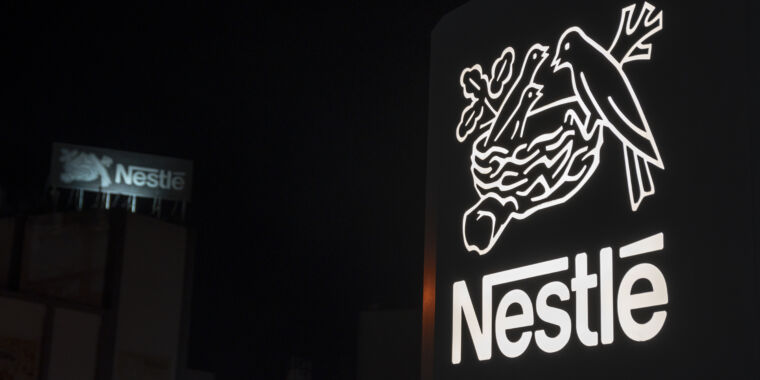In high-income countries, Nestlé brand baby food has no added sugar. Recommendations from leading health organizations Pressure from consumers around the world. But in low- and middle-income countries, Nestlé is adding sugar, sometimes in high concentrations, to the same baby products, which can encourage children to prefer sugary foods and unhealthy eating habits. Recently published research results from non-profit organizations.
The study, carried out by Public Eye and the International Baby Food Action Network (IBFAN), said adding sugar to baby food in poor countries, contrary to expert recommendations, created an “unwarranted double standard”. There is. The group quoted Rodrigo Vianna, an epidemiologist and professor at Brazil’s Federal University of Paraiba’s Department of Nutrition, saying added sugar in baby food is “unnecessary and highly addictive.” There is.
“Children become accustomed to sweet tastes and begin to seek out sweeter foods, starting a negative cycle that increases the risk of malnutrition in adulthood,” Vianna told the research group. . “These include obesity and other chronic non-communicable diseases such as diabetes and hypertension.”
The two groups compared the nutritional content of Nestlé’s Cerelac and Nido products. These products are the company’s best-selling baby food brands with sales of more than $2.5 billion in low- and middle-income countries. For example, Cerelac wheat cereal products had up to 6 grams of added sugar in countries including Thailand, Ethiopia, South Africa, Pakistan, India, and Bangladesh. In England and Germany, the same products had no added sugar.
The product with the highest sugar content was Cerelac baby cereal products sold in the Philippines, with 7.3 grams of sugar.meanwhile It is recommended that children under 2 years of age have zero grams of added sugar in their dietFor reference, it is recommended that children between the ages of 2 and 18 consume less than 25 grams (about 6 teaspoons) per day. According to the American Academy of Pediatrics.
The investigation found that in the Philippines, where sugar content was highest, and in other countries such as Nigeria, Senegal, Vietnam and Pakistan, the added sugar content was not listed on Nestlé’s labels.
double standards
“There are double standards here that cannot be justified,” WHO scientist Nigel Rollins told the nonprofit, noting that the company does not add sugar to its baby products in Switzerland, where it is headquartered. . So continuing to add it in low-resource settings is “problematic from both a public health and ethical perspective,” he said.
in Last month’s report, WHO found that as of 2022, 37 million children under the age of five around the world are overweight. Additionally, more than 390 million children between the ages of 5 and 19 were overweight and 160 million were obese. The UN agency noted that the prevalence of overweight among children aged 5 to 19 has risen from 8% in 1990 to 20% in 2022. Meanwhile, obesity rates in this age group rose from 2% to 8% within the same period.
Nestlé responded to the survey as follows: statement It suggests that differences in sugar content are determined by “several factors, including regulations and the availability of local ingredients, which may result in products with lower or no added sugar.” . However, it insisted that these differences “do not diminish the nutritional value of our products for infants and young children.”
Nestlé is a multinational food and beverage giant with a controversial history of selling baby products in poor countries. In the 1970s and 1980s, the company came under international criticism for aggressively marketing infant formula to poor mothers. Health advocacy groups have accused Nestlé of misleading mothers into believing that formula is better for infants than breast milk, despite leading health organizations. Exclusive breastfeeding is recommended for the first 6 months of life if possible.
Critics say Nestlé provides free formula in maternity wards, encouraging low-income new mothers to turn to formula during the critical period immediately after giving birth, when breast milk production would increase as the newborn breastfeeds. He blamed it for becoming like that. Without breastfeeding during that time, the mother may have a hard time breastfeeding and become dependent on milk. Outside of hospitals, formula is no longer free and must be mixed in a hygienic environment and in the right amounts to be safe and meet infant nutritional needs, which can be difficult for poor families.
nestle Currently says: that it continues international standards For selling breast milk substitutes despite ongoing boycotts in some countries.

